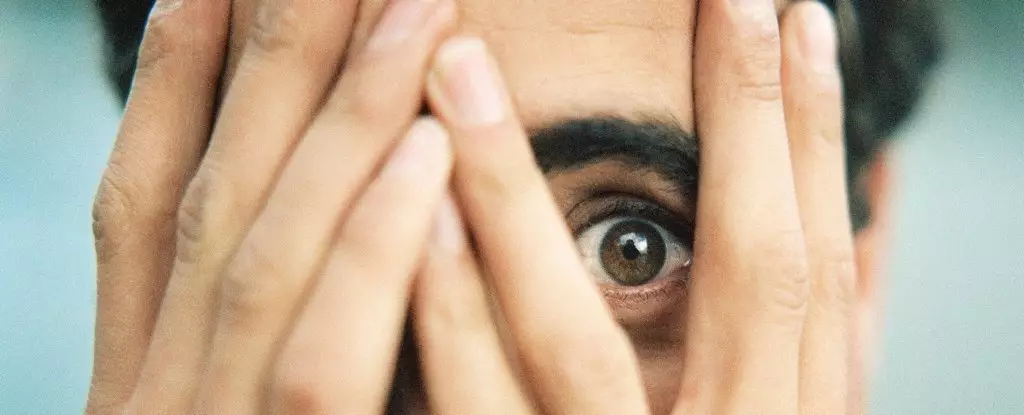We’ve all been there: you’re in a meeting, lecture, or social gathering and someone nearby won’t stop tapping their foot, playing with their hair, or drumming their fingers. It can feel like a swirling storm of irritation, creeping up your spine, pulling your focus away from the task at hand. This phenomenon isn’t just an annoyance; it has a name—misokinesia. Characterized by an intense aversion to the sight of others’ repetitive movements, misokinesia affects many, with research suggesting that nearly one in three people may experience some level of this distressing sensitivity. The psychological implications of witnessing a fellow human’s fidgeting may be profound, causing anxiety, frustration, and even embarrassment.
Understanding Misokinesia: A Relatively New Concept
Despite its prevalence, misokinesia is a relatively new area of research. Traditionally overlooked in psychological literature, it aligns with the more established disorder of misophonia, where specific sounds trigger adverse emotional responses. Researchers led by psychologist Sumeet Jaswal at the University of British Columbia have begun to unravel this intriguing relationship, revealing the hidden distress that may accompany inattentive movements. The identification of misokinesia as a distinct condition opens discussions about how we process the behaviors of others and how these perceptions can trigger social and emotional repercussions.
In their comprehensive studies involving over 4,100 participants, Jaswal and colleagues demonstrated that a significant percentage of individuals report experiencing sensitivity to others’ fidgeting behaviors. Surprisingly, this sensation is not confined to clinical conditions; it appears to permeate the general population, highlighting that many individuals grapple with the emotional fallout of misokinesia in their daily lives.
The Emotional Toll of Fidgeting
The repercussions of misokinesia are far-reaching. Those who experience it often report feelings of anger, frustration, and anxiety, transforming social activities into venues of discomfort. The atmosphere of learning, teamwork, and even casual chit-chat can be overshadowed by the distracting effects of fidgeting. This condition not only decreases the overall enjoyment of social interactions, but it can also lead to a withdrawal from communal experiences. Imagine being in a vibrant social setting, yet feeling compelled to distance yourself because the continuous trembling of someone’s leg becomes unbearable.
The work of Todd Handy, who first encountered the effects of misokinesia through a dialogue with his fidgeting partner, made clear that this phenomenon warrants deeper investigation. It raises the question: why are some of us more susceptible to this form of distraction? Emotional responses may vary significantly, underpinning a spectrum of sensitivity that hasn’t been thoroughly explored.
The Mechanism Behind Misokinesia
While considerable uncertainty remains regarding the origins of misokinesia, researchers are investigating potential physical and psychological roots. Preliminary studies suggest that heightened visual attention may be involved; however, definitive conclusions are still elusive. An intriguing hypothesis revolves around the brain’s “mirror neurons,” which activate both during our movements and when observing others’ actions. This could imply that when witnessing someone fidget, those sensitive to misokinesia may unconsciously mirror the fidgeter’s emotional state, creating a feedback loop that intensifies their own discomfort.
Jaswal’s follow-up research conducted in 2024 hints that those prone to misokinesia may struggle more with disengagement from distracting stimuli rather than the initial distraction itself. This perspective would suggest that improving cognitive flexibility could help mitigate the adverse reactions to fidgeting.
The Growing Awareness and Future Directions
It is evident that misokinesia is more common than once thought, and acknowledging this condition is crucial for developing strategies to cope with it. For those who find themselves easily agitated by fidgeting, recognizing that they are not alone can provide some solace. Furthermore, as we deepen our understanding of this phenomenon through ongoing research, there is hope for better coping mechanisms and insights into the corresponding societal dynamics that exacerbate discomfort in social encounters.
As we uncover more about misokinesia, we can foster a greater understanding and compassion among individuals, learning to navigate our environments with awareness of how even the smallest movements can impact those around us. By exploring the implications of misokinesia, we open doors to a broader dialogue about human behavior, emotional responsiveness, and the importance of empathy in our social interactions.

